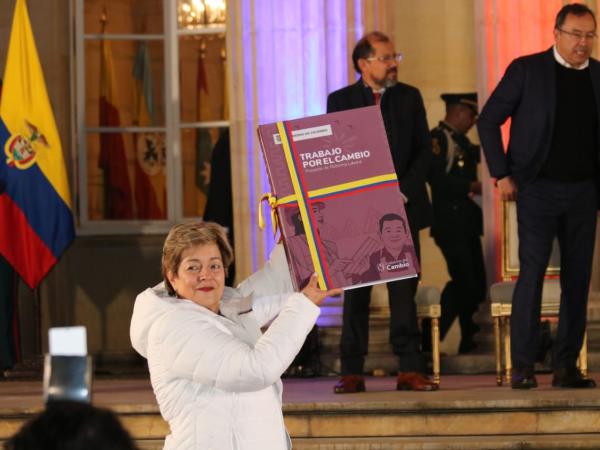Colombia will have a new labor system. This Thursday night, the project of labour reform before Congress, an article made up of 76 articles, which modifies the Substantive Labor Code and seeks changes in issues such as equal opportunities for workers, the protection of individual rights of workers, as well as the guarantee of collective labor rights, referring to trade union guarantees.
Faced with the draft that was discussed in recent weeks before the Commission for the Coordination of Wage and Labor Policies, the text that reached Congress presents some changessuch as that in its first articles it indicates that fixed-term contracts may be for up to two years.
Article 7 of the project determines the potential beneficiaries of the reinforced job stabilitya measure that establishes that certain population groups, such as pre-pensioners, pregnant women or people with disabilities, can only be terminated with just cause or with a legal cause, in addition to an administrative or judicial order.
(Also read: Consult here the complete text of the labor reform.)
There were also included those workers “protected by the union law”, and also those “protected by the health law”, but finally, it did not shelter the fathers and mothers of families without other financial support, as was intended in the draft.
In relation to the compensation for unfair dismissal there are also changes, and these conditions were consigned in article 8 of the project.
It is defined that, in indefinite-term contracts, An indemnity of 45 days of salary will be paid When the worker or worker has a time of services of no more than one year, and in cases in which the permanence has been of more than one year of continuous service, “they will be paid an additional 45 days of salary on top of the 45 basic days of the previous point , for each of the years of service subsequent to the first, and proportionally by fraction”.
(Also read: The 10 key proposals of the labor reform, according to the Government.)
In addition, article 9 establishes compensation for non-payment at the end of the contracts.
Between the key points of the project is the definition of the workday ordinary 8 hours of work and a maximum of 42 hours a week, spread over 5 or 6 days. In addition, the day of daytime work from 6:00 am to 6:00 pm, and night work from 6:00 pm and 6:00 am the following day.
The text also proposes exceptions for certain activitiesfor which “the employer must keep a daily record of the supplementary work of each worker specifying the name, activity carried out and number of hours worked with the precision of whether they are day or night”.
(Also read: With doubts about employment and informality, the labor reform was filed.)
Another key element of the project is the regulation of work on delivery technology platformsthere it not only defines which activities are classified as such, but also determines, in terms of labor relations, that the platforms must bind these workers to an employment contract, and that they must also affiliate their workers to social security.
“There will be guarantees for work on digital delivery platforms, we are going for the formalization and industrialization of the Colombian countryside, an increase in paternity leave to 12 weeks and equal pay between men and women, among others,” assured in the midst of filing the project the Minister of Labor, Gloria Inés Ramírez.
(Also read: ‘This bill seeks to dignify work’, Petro.)
LAURA LUCIA BECERRA ELEJALDE
















